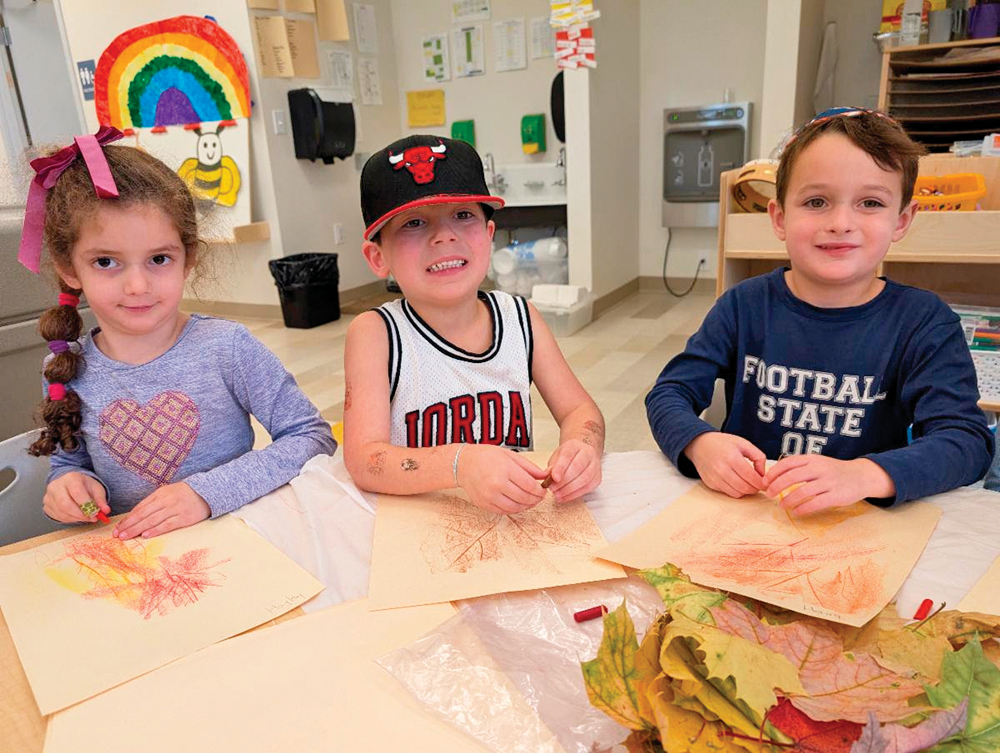




On July 27, author and history educator Ben Freeman tweeted to his 14,400 followers: “A tell-tale sign that Jews are the most continuously persecuted people in the history of mankind & how deep Jew-hatred runs is that today, in the age of social justice activism we are excluded & framed as the oppressor. It is the modern result of an ancient hate.”
Freeman spoke with me all the way from Hong Kong, where he teaches Holocaust history at an international school, a long way from his native hometown of Glasgow, Scotland. As he explained, he was raised with a strong Jewish identity, and has always been involved with the Jewish community.
“My parents worked incredibly hard to create a Jewish life for us in Glasgow,” Freeman said. “Because of my upbringing, I was always very proud to be a Jew and proud to be a Zionist, but it was never really something I considered—it was just the way it was.”
It wasn’t until Freeman began studying at the University of Glasgow that he said his identity was truly tested, which he felt was akin to what American Jews are experiencing on college campuses today. “Being labeled a white supremacist and a colonizer, just because I believed in Jewish self-determination in our indigenous homeland, was a very trying experience.” His struggle as a Jewish student, which Freeman described as “horrendous,” propelled him even further into exploring the history of the Jewish experience as he pursued Holocaust studies and surveys of anti-Jewish hatred in history.
When British MP Jeremy Corbyn was leading the Labour Party down a spiraling path of antisemitism following the 2017 U.K. elections, Freeman felt compelled to join Twitter “as a proud Jew.” He explained that before Corbyn’s rise to the fore of antisemitism, he had “taken a step back” from his activism after his father’s passing in 2017, but the “Corbyn crisis” is what brought him back to educating others about anti-Jewish racism. “The timing worked perfectly,” Freeman said. “I had the opportunity to be mindful and deliberate, since I understood exactly how Twitter worked.”
From the outset, Freeman’s presence on Twitter has been incredibly deliberate. When he joined, he knew there would have to be a purpose—which he decided would be to educate others, a talent that he exercises every day as a history professor. “I’m able to distill very complex ideas or pieces of history into digestible chunks,” he said. “I guess that’s how I became the educator on Twitter.”
And it was Freeman’s observations on Twitter that inspired his recent work, “Jewish Pride: Rebuilding a People,” which explores the importance of rejecting anti-Jewish sentiments and reclaiming Jewish narratives—ultimately converting the antisemitism that we as Jews have internalized into empowerment.
“When I joined Twitter, I saw that the majority of the British-Jewish community really embodied Jewish pride … we set aside our differences, we came together, and we spoke as one,” Freeman recalled. “At the same time, I saw that there were left-wing Jews who were unable to call the problem for what it was. They were unable to say ‘Corbyn is a racist,’ which I see is a result of the ‘keep-your-head-down policy.’ I felt this was unacceptable; I knew we should be advocating and standing up for ourselves. We needed a pride movement.”
Even before Freeman wrote “Jewish Pride,” he was speaking about the importance of being a proud Jew, despite audiences telling him that the movement wasn’t necessary. He would explain to his Jewish listeners that the Jewish pride movement was essential for undoing generations of internalized antisemitism, something that has caused Jews to develop a sense of shame for their identities. With that, Jews are able to learn how to reject non-Jewish definitions of identity.
Freeman explained that the same applies to Zionism: “We should reject non-Jewish definitions to bastardize Zionism and make it something that it’s not. Zionism is the Jewish movement of self-determination in our indigenous homeland—full stop.” His hope through these rejections is to encourage Jews to “go on a journey,” and “explore an authentic Jewish history experience.”
Freeman quickly differentiated between what American Jews describe as being “proud,” and what true Jewish pride is. “There are many Jews in America, specifically, who identify as proud Jews but are anti-Zionist,” he said. “You cannot be a proud Jew and an anti-Zionist, because anti-Zionism is antisemitism. It’s antithetical, and impossible.”
Some of the content in Freeman’s book has been called “radical,” such as that antisemitism is not a Jewish problem, which Freeman said only seems radical because of the narrative that Jews have been led to believe. “It’s about reclaiming our own narrative. The response has been remarkable, because I think that resonates with a lot of people.”
In both real life and on social media, Freeman compared Jewish integration to being in a dating relationship. “If you’re dating someone, and they’re ghosting you, you just have to let it go. Don’t chase after them,” he said. “The same goes for our relationship with wider society—if they continue to reject us, we should not have to bend over backwards to be accepted. I’m not going to apologize. They’d better accept us for who we are, because we are a people who work hard to integrate—and it needs to go both ways.”
Freeman’s efforts to rally a Jewish pride movement have not gone unnoticed; “I’ve received messages from people saying it’s changed their lives,” he said. Overall, Freeman explained that the root of the movement, and his tireless social media education, is about making the Jewish people understand who we are. “We cannot disregard our indigeneity or our tradition. Whether we are American, British, French, Israeli, that’s who we are—we are Jews. It’s about proudly reclaiming our destiny. That, I think, is the most important.”
Follow Ben Freeman on Twitter at @BenMFreeman. His book, “Jewish Pride: Rebuilding a People,” is available on Amazon.
Channa Fischer reports on digital Jewish and Zionist advocacy. She resides in Washington Heights.













